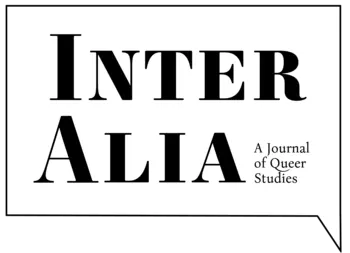https://doi.org/10.51897/interalia/LIGZ4891
Lacanian Ethics, the Psychoanalytic Group, and the Question of Queer Sociality
Luiz Valle Junior
https://orcid.org/0000-0003-3216-8644
University of London
Abstract
This article is an attempt to frontally pose a question queer theory gravitates around, yet never effectively spells out: what is a togetherness of those who have nothing in common but their desire to undo group ties? First, I consider the take-up of Lacan’s ethical experiment in Seminar VII, the Ethics of Psychoanalysis by queer theorists. I contend that queer theory has not given Lacan’s interpretation of Antigone its full import, which demands its placement in the philosophical tradition of the West brought to its highest fruition in Kant. I further contend, however, that to do so does not quite offer a solution to the queer problem, for, as contemporary debate on the political import of Antigone shows, the purity of her desire does not immediately translate into a sustainable politics. Lacan himself was faced with the problem of translating his ethics into a politics after his “excommunication” from the psychoanalytic establishment, and came to falter before it. Nevertheless, Lacan’s efforts allow us to pose the undoubtedly queer question of how to group together those whose only attribute is to undo group ties. Responding to the unanswerable demands of a theory and a practice that allows us to answer that question, I propose the figure of the smoker’s communism, as elaborated upon by Mladen Dolar, as a preliminary queer suggestion as to how we might go about mitigating the gap between Lacan’s ethical brilliance and his admitted political failure.
Keywords: Jacques Lacan; desire; sociality; Antigone; anti-social thesis in queer theory
